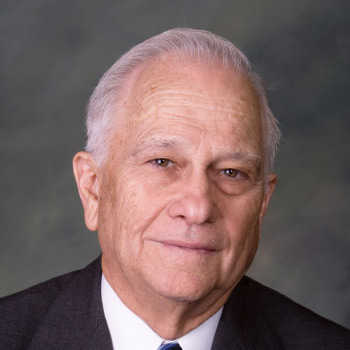The day Mitt Romney selected Paul Ryan as his running mate, attention turned to the “Ryan budget,” the proposal he put forth as chairman of the House Budget Committee to deal with the nation’s fiscal crisis. Both sides seized on Medicare and the supposedly drastic difference between the Republican’s plan and President Obama’s.
Democratic National Committee Chairwoman Debbie Wasserman Schultz told Fox News Sunday, “Paul Ryan has embraced an extremist proposal.”
Speaking in Orlando the same day, she said the Ryan plan “could end Medicare as we know it.”
Not to be outdone, Mitt Romney told CBS News, “There’s only one president that I know of in history that robbed Medicare of $716 billion to pay for a new risky program of his own that we call ObamaCare.”
The difference sounds fundamental, but actually it is a mirage. Surprisingly, there’s very little difference between the two plans. There is no important difference in Medicare spending—even when the estimates of the president’s budget are made by his own Office of Management and Budget and the costs of the Ryan plan are projected by Ryan himself.
Based on what we know, the difference is in how the spending targets are achieved. And even there similarities abound.
Medicare already privatized in part
Much has been made of the fact that Ryan would create “vouchers,” allowing seniors to buy private insurance. To hear the critics tell it, this would radically transform Medicare by “privatizing” it.
But we already have a voucher program under Medicare: Medicare Part C, or the Medicare Advantage program. And one out of four Medicare beneficiaries is enrolled in a Medicare Advantage plan.
President Obama has long favored reducing the payments to these plans, and significant cuts are part of the Affordable Care Act (ObamaCare).
However, neither the president nor any other prominent Democrat is calling for the abolition of these very popular plans. To the contrary. the administration is busily shoring them up with “bonus payments,” fearing that a significant number of plans leaving the market before the election would anger elderly voters.
Although Ryan favors an expansion of private Medicare plans, his budget implicitly endorses the same payment cuts that are incorporated in the health law.
In the original Ryan budget, all seniors would have enrolled in private plans. In the latest version, everyone will have the option of remaining in the traditional Medicare program. So regardless of how much the private plans are paid, total spending can’t be controlled unless traditional Medicare costs are brought under control.
How would Ryan do that?
One new idea Ryan has proposed is to eventually increase the age of eligibility from 65 to 67. Because the president has signaled a willingness to do the same thing in budget negotiations with Republicans, it’s hard to make too much of this.
Beyond that, the Ryan plan would limit the growth in Medicare spending to per capita GDP growth plus 0.5 percentage points—which again is in line with the president’s budget.
If efficiencies can’t be found
We know how spending will be curtailed under the president’s approach. Under the 2010 heath reform law, the first line of attack will be demonstration projects and pilot programs that point the way to more efficient ways of delivering care.
Unfortunately, three Congressional Budget Office reports have concluded that the demonstration projects are not working or are producing lackluster results.
If efficiencies cannot be found, the fallback mechanism under the law is to limit the growth of payments to providers.
Here’s the problem with that idea. As the most recent Medicare Trustees’ report points out, compared with private insurance plans, Medicare payments to doctors are going to fall by half from 80% of what private plans pay to only 40% over the next two decades.
Medicare hospital fees are less than 70% of what private insurers pay, and this percentage also will decline over time as well.
The Medicare actuaries predict that one in seven hospitals will not survive these cuts, and that seniors will have increasing difficulty finding doctors who will see them.
The White House and Ryan Medicare budgets don’t differ that much. What does differ is their approach. The president’s approach is inflexible. Ryan’s approach has the advantage of making the cuts less painful by allowing market-based reforms instead of suppressing provider fees.












